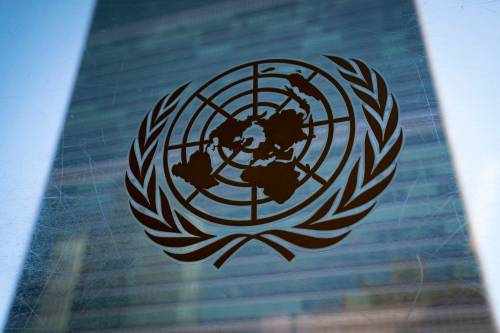Opinion
PM makes progress, but obstacles remain
5 minute read Saturday, Jan. 17, 2026What a difference a day makes.
Just yesterday on this page we were talking about how Canadian producers were unlikely to see much — if any — movement on the issue of Chinese tariffs on canola, peas, pork and seafood. Until now, China had been firm in stating that tariffs on these commodities would remain in place until Ottawa dropped its 100 per cent tariff on Chinese-made electric vehicles.
And in the week leading up to Prime Minister Mark Carney’s visit to China on Thursday and Friday, the federal Liberals were trying to curb expectations within the industry.
For the sake of local canola and pulse crop producers, we’re glad our expectations proved incorrect.
Advertisement
Unreasonable hypotheticals beginning to feel very real
4 minute read Thursday, Jan. 15, 2026“I would like to make a deal, you know, the easy way. But if we don’t do it the easy way, we’re going to do it the hard way.”
— U.S. President Donald Trump, talking of making Greenland part of the United States
“It’s clear that the president has this wish of conquering over Greenland.”
— Danish Foreign Minister Lars Løkke Rasmussen
Liberals’ bail reforms won’t mean much
5 minute read Saturday, Oct. 18, 2025When the federal Liberal government unveils its latest round of bail law changes next week, you can bet on two things.
First, the government will tout them as bold new measures to make communities safer. And second, before the ink is dry, there will be fresh outrage when another accused offender released on bail commits a violent crime. It’s pretty much a guarantee.
The outcry will come, as it always does, regardless of government’s tinkering around the edges.
Granted, the public is frustrated. But here’s the reality: these latest bail law reforms will do little, if anything, to reduce crime or prevent repeat offending.
How should we move forward?
5 minute read Preview Saturday, Jul. 19, 2025AI ‘slop’ and the end of the internet
5 minute read Preview Monday, Jul. 14, 2025Defence spending pledge is timely and significant
6 minute read Tuesday, Jun. 10, 2025There was a time when Canada was a genuine military power.
Toward the end of the Second World War, Canada’s Armed Forces numbered more than one million men and women, and this nation’s navy and air force were among the largest in the world. As columnist Louis Delvoie stated in an op-ed for The Kingston Whig Standard back in 2015, “Canada’s war effort had been massive for a country of only 11 million people.”
Here we are, 80 years later, a nation of 44 million — and yet the Canadian Armed Forces are but a shadow of their former strength by comparison.
Last March, the CBC reported that only 58 per cent of the Canadian Armed Forces would be able to respond to a crisis if called upon by NATO allies, as nearly half of the military’s equipment is considered “unavailable and unserviceable.”
UN committee rightly calls out Canada’s devaluing of disability
4 minute read Preview Tuesday, Jun. 10, 2025Take responsibility for poor tax rebate rollout
5 minute read Preview Wednesday, Jun. 4, 2025The age of American leadership has been completely swept away
5 minute read Preview Wednesday, Jun. 4, 2025Trump’s pharma pricing order could have big effect in Canada
4 minute read Preview Tuesday, Jun. 3, 2025Liberals have to stop dragging their feet on bruising China tariffs
5 minute read Tuesday, Jun. 3, 2025During the first ministers meeting in Saskatoon on Monday, Prime Minister Mark Carney told the premiers around the table that the threat posed by U.S. tariffs means that Canadians must rally behind “nation-building projects” to boost the Canadian economy.
And in the same breath, according to a report by The Toronto Star, he praised the provincial leaders for working together to eliminate interprovincial trade barriers.
“I can’t keep up with the flurry of announcements of free trade agreements between provinces and across the country,” the prime minister said, in reference to to Ontario’s recent deals with Alberta, Manitoba, Saskatchewan, Nova Scotia and Prince Edward Island.
Certainly the Carney government is making many of the correct political noises around that table when it comes to breaking down interprovincial barriers — part of an election promise to counter the financial disaster those tariffs pose to the Canadian economy.
Cuts affect choices for international students
6 minute read Tuesday, May. 20, 2025With Advanced Placement (AP) exams just finishing, high school students in Brandon and around the world are nearing the end of their university-level courses.
The AP program first started in the United States during the Cold War as an academic program for high-achieving, typically wealthy, white students who demonstrated readiness for university-level work. The U.S. feared that high schools were not adequately preparing their students for university or post-graduate studies. Over the years, the program has expanded to numerous countries and has become more inclusive with a focus on equity and diversity.
On March 20, U.S. President Donald Trump signed an executive order directing Education Secretary Linda McMahon to begin dismantling the Department of Education. This has since been followed by further cuts to higher education and research. As students both local and international are preparing for the summer, beginning post-secondary plans or eagerly waiting for graduation, these developments south of the border are something to consider as impacting future plans.
The decision to dismantle the Department of Education will greatly affect low-income students, students of colour, students with disabilities and students from rural areas with less funding. Trump states on the White House website that taking out the Department of Education will drastically improve program implementation in higher education. By closing the Department of Education and returning authority to the states, he hopes to help “children and their families to escape a system that is failing them.” He says that the American education system through federal programs has failed their children, teachers, and families.
Vancouver SUV attack exposes crowd management falldowns
5 minute read Preview Monday, Apr. 28, 2025Bogus pretext for the Trump tariffs
4 minute read Preview Thursday, Mar. 20, 2025Amid the torrent of bad news coming at Canadians from many directions — but especially south — it’s good to take time to appreciate a positive move when it happens.
On that note, Manitoba has the distinction of being the first province to jump aboard the federal government’s national pharmacare program, which will see diabetes medication and birth control covered by federal funding.
Manitoba’s deal with Ottawa — which will see the federal government spend $219 million on pharmacare for the province over four years — is hopefully one of many to be inked across the country. Manitoba’s coverage is expected to start in June.
These baby steps into a comprehensive national pharmacare are welcome — and overdue. As much as Canadians take pride in our national health care (despite its struggles), the system has long covered less than it could. Between pharmacare and federally supported dental care for Canadians, the country is heading toward a much more holistic way of covering its citizens’ needs.
LOAD MORE OPINION ARTICLES









